Some stories are better left untold, for the sour memory it evokes leaves the heart totally repugnant to the most trivial of synonymous narratives. They haunt not only to the soul that harbour them. For a journalist, such stories cannot wither. They must be nourished and told. While the Osun state governorship election was to a large extent successful, the rerun was a tragedy – a well-choreographed one at that.
My journey to Osun began on September 21. The vehicle I boarded breezed past colourful posters, signboards and a few road shows announcing political parties, candidates, agendas and everything associated with the season. Osogbo, the state capital, was agog with the influx of people who had come to witness the election that would usher in a new helmsman on whose orders the fate of the state lies. Although just a day to the election, the atmosphere was calm.
On the D-day, voters came out to exercise their civil duties. As early as 6am, I left for Ede, a stone’s throw from the state capital. I observed that officials of the Independent National Electoral Commission (INEC) started setting up polling booths as of 6:30am. There and then, I knew it was going to be an interesting exercise. Voting commenced early and the process was pleasant and free.
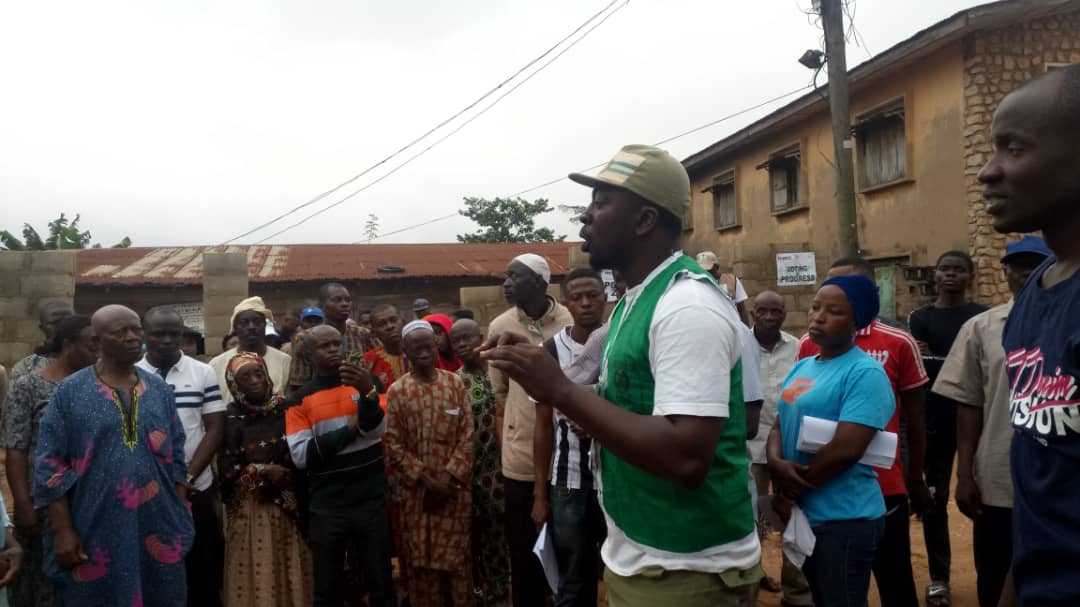
I visited more than 40 polling units in at least three local government areas and the election went smoothly, save for some complaints and technical hitches in some polling units. By nightfall, results started trickling in; people already had a rough idea of the figures from local government areas, how the parties fared, who was leading among the candidates, jubilation had begun in some quarters but no one predicted the end. With a difference of 353 votes between Ademola Adeleke, Peoples Democratic Party (PDP) candidate who polled 254,698 and Gboyega Oyetola, his All Progressives Congress (APC) counterpart had polled 254,345, Joseph Afuwape, the returning officer, declared the election inconclusive. A rerun was slated for Thursday in the seven polling units were votes were cancelled.
Advertisement
The affected local government areas were Ife South, Ife North, Osogbo and Orolu. I was assigned to Orolu, where three of the polling units were located.
THE JOURNEY TO IFON-OSUN
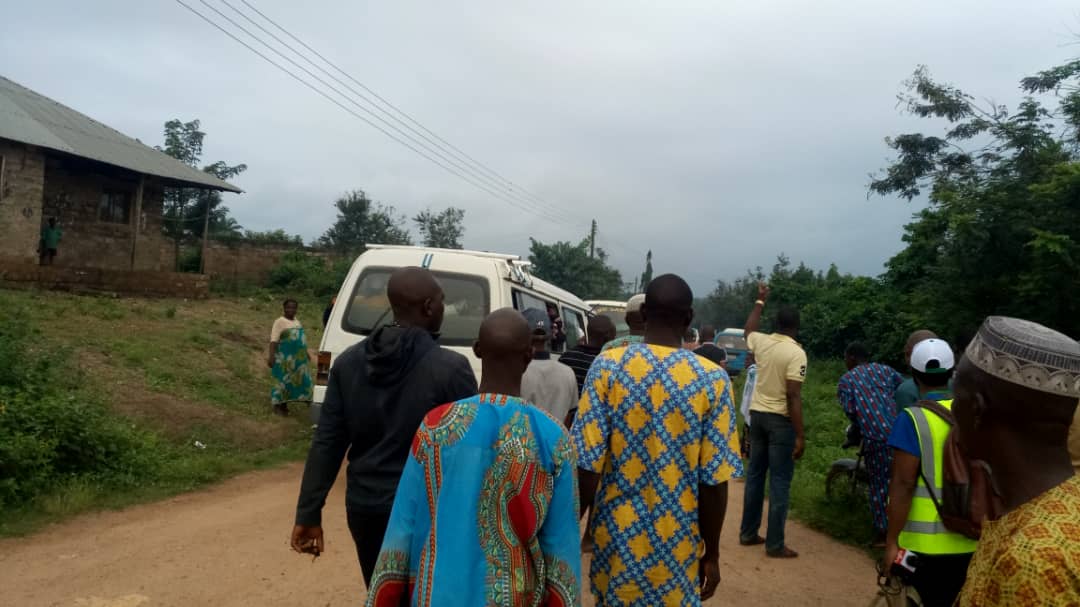
At 7am, I set off for Ifon-Osun, headquarters of Orolu. From the tension at the Idisu area of the town, I already had an inkling of the event to unfold. Hundreds of voters who identified themselves as members of PDP, gathered to discuss the cruelty that was unleashed on them. The previous day, political thugs had invaded their villages, shooting sporadically and sending them out to the town. They took refuge in the palace of the Olufon of Ifon. The villages where voting was supposed to take place were no longer accessible as the thugs had established a kingdom of terror. Those who attempted to force their way to the polling units were beaten and sent back, while their permanent voter cards (PVCs) were snatched from them. This is going to be messy, I thought.
Advertisement
Nevertheless, I told my driver to soldier on. For the next 15 minutes, we were on a rough tiny path in-between bushes heading for Kajola village, where ward 8, polling unit 1 was. At intervals, we ran into ditches along the clay-filled track. As we got to the entrance of the village, we were stopped by thugs who had formed a barricade to screen those who go in and out of the polling zone. Occupants of two vehicles before us were beaten and sent back. The leader of the group drew closer, “You people are journalists. You can go. But I want you to be careful,” he warned. Just thirty seconds after the barricade, we met a retinue of security operatives not less than 50 who vetted us and ordered us strictly not to make video recordings at the voting centre at Kajola Community Primary School.
JOURNALISTS WERE HARASSED
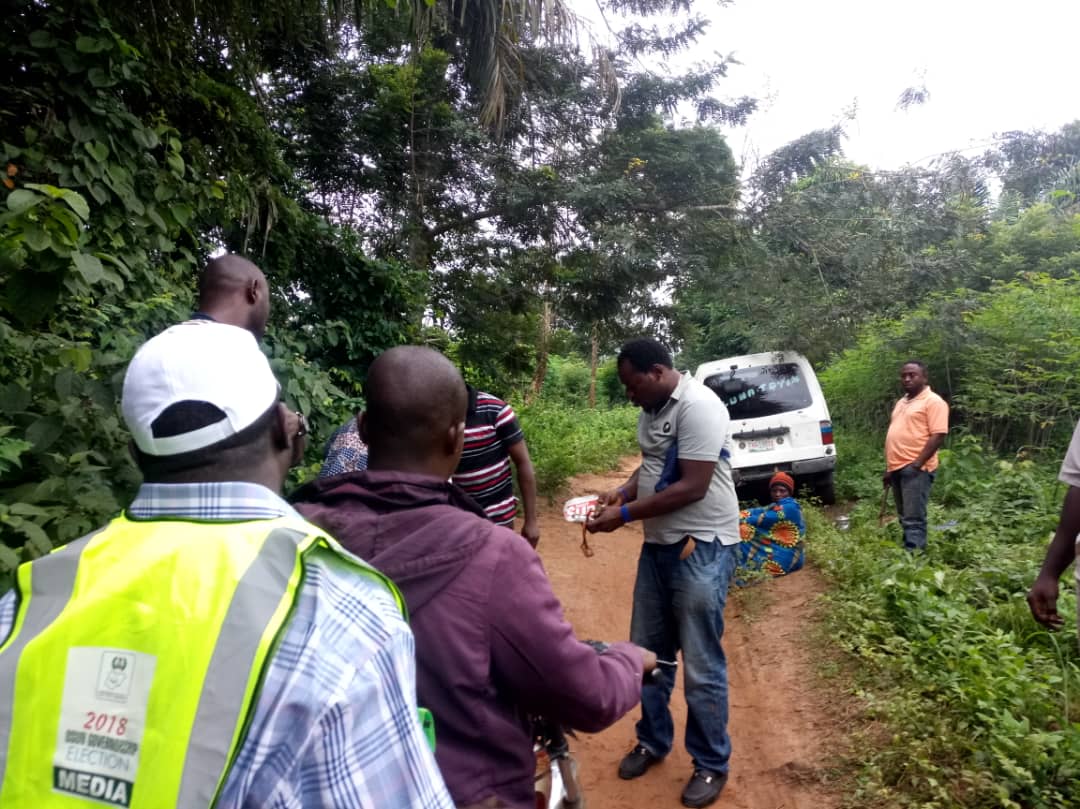
I met my friend Kemi Busari, a reporter with Premium Times, who had to quickly brief me of the situation of things. He was arrested briefly for taking pictures and later released. When Tajudeen Ajigini, the supervisory presiding officer, spoke with reporters, I asked him why the PDP agent was not accredited like other party agents, he said he didn’t know anything about that. We were later warned to desist from asking certain “sensitive” questions if we were to conduct any interview. An elderly journalist called us for a brief meeting where he insisted that we should be careful of the questions to ask if we still desired to leave the location alive.
NETWORK BARRIER
Advertisement
By the way, there was no network in the village. So, no one could make or receive calls. Aside the school building, there were no other buildings close-by. We were entrapped in the jungle. Journalists and observers were terrified. There and then, I remembered the words of Koffi Awoonor, a Ghanaian poet. In his Songs of Sorrow, he mused, “It has led me among the sharps of the forest. Returning is not possible and going forward is a great difficulty. I am on the world’s extreme corner.”
I was incommunicado for over one hour and this period was a trying one for colleagues back in Lagos. I was later made to understand that the anxiety grew because the last message I sent before the network went bad showed that I was in a dangerous area. When my editor finally reached me, I could sense from his voice that he was terribly worried.
ANOTHER ENCOUNTER WITH THUGS
As we stepped out of the primary school, we walked through the slippery, muddy road while we dragged our motorcycles behind. Vehicles were stuck in the mud. While I brought out my phone to take pictures, I was immediately surrounded by thugs who openly professed to be working for APC. One of them snatched my phone as other pushed me. One, who had reached out for a big stick, accused me of taking their picture. He was prevented from hitting me by their leader who said my phone had already been confiscated. It took the intervention of some journalists before the phone was released after I deleted some pictures I took at the polling unit right in their presence. But the security operatives shied away.
Advertisement
THUGS LEAD THE WAY, SECURITY OPERATIVES FOLLOW
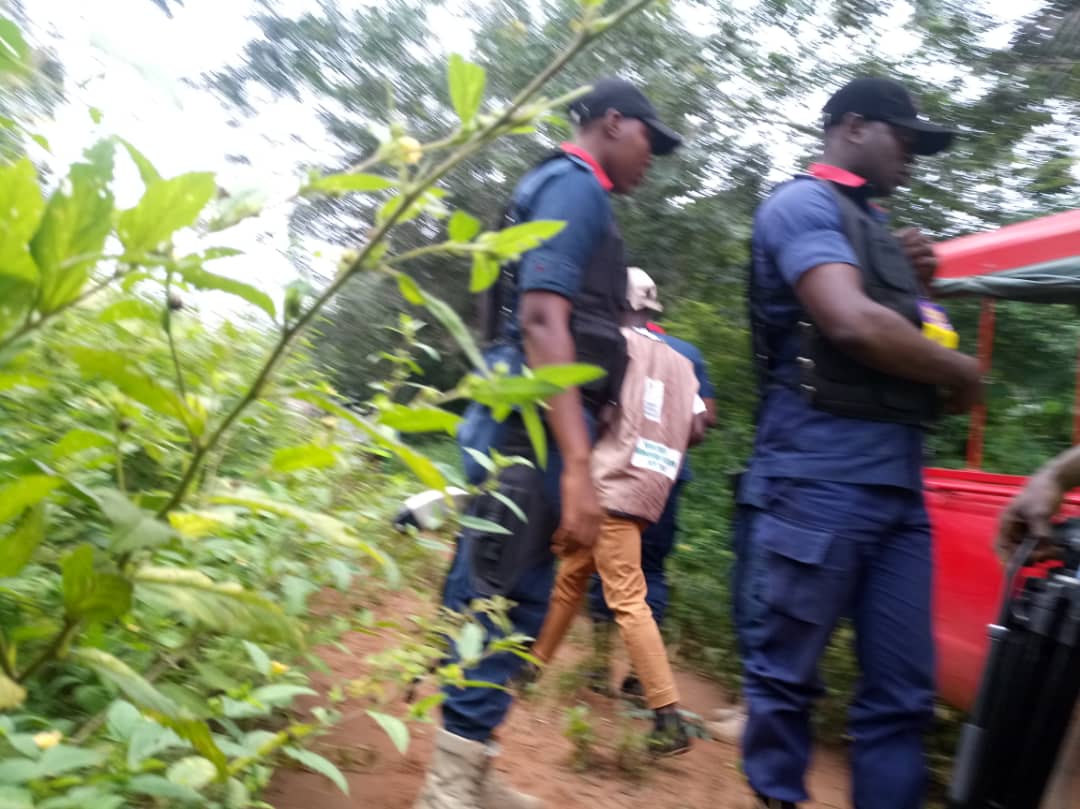
When we heard that some of the security operatives with the INEC supervisory officer were going to ward 8, polling unit 4 at Idiya village, we decided to follow the convoy. Busari joined me, while the journalists from SaharaReporters followed. We were led by a blue bus filled with thugs who were wielding machetes, guns and charms, followed by the vehicle conveying the INEC official and security operatives. We trailed behind. When the blue bus paused, the one behind halted and our vehicle would slam the break too. Still, we followed.
Advertisement
At the entrance to Idiya village, we met a military truck and soldiers, about 10 in number, stationed there. We were stopped by one of their commanders. He asked the security operatives we followed if we were with him and the senior office snapped, saying he didn’t know who we were. We had to quickly identify ourselves as journalists coming to cover the voting process. Before I uttered another word, he ordered us to leave immediately and that our work wasn’t needed at the polling unit. As the commander marched towards us with his escorts, we made a detour and disappeared instantly.
RESIDENTS RECOUNT THEIR ORDEAL
Advertisement
Voters protesting in Orolu LG after their voters cards were collected by gun-wielding thugs and sent away https://t.co/6AOkbxjuNZ #OsunRerun #OsunDecides2018 pic.twitter.com/xc0Qxz0K98
— TheCable (@thecableng) September 27, 2018
Advertisement
When we got back to Ido-Osun, we met a protest close to the king’s palace by residents who had been beaten and injured on their way to cast their votes. They were chanting that there was no election in their local government as only residents loyal to the ruling party were allowed to vote. An elderly woman said those who voted were given N20, 000 each and a white handkerchief which they presented to the thugs before they were given entry to the polling units. Ruka Ladosu, a nursing mother, was pulled down from the motorcycle that took her to the voting centre. She ran through the bushpath back to town.
Some observers who met us in town said they were also not allowed to gain access to ward 9, unit 1, Gbogbo village and Idiya, while those who stayed behind at Kajola were later sent away. About 3pm, I left Ido-Osun for Osogbo.
MORE ONSLAUGHT IN OSOGBO
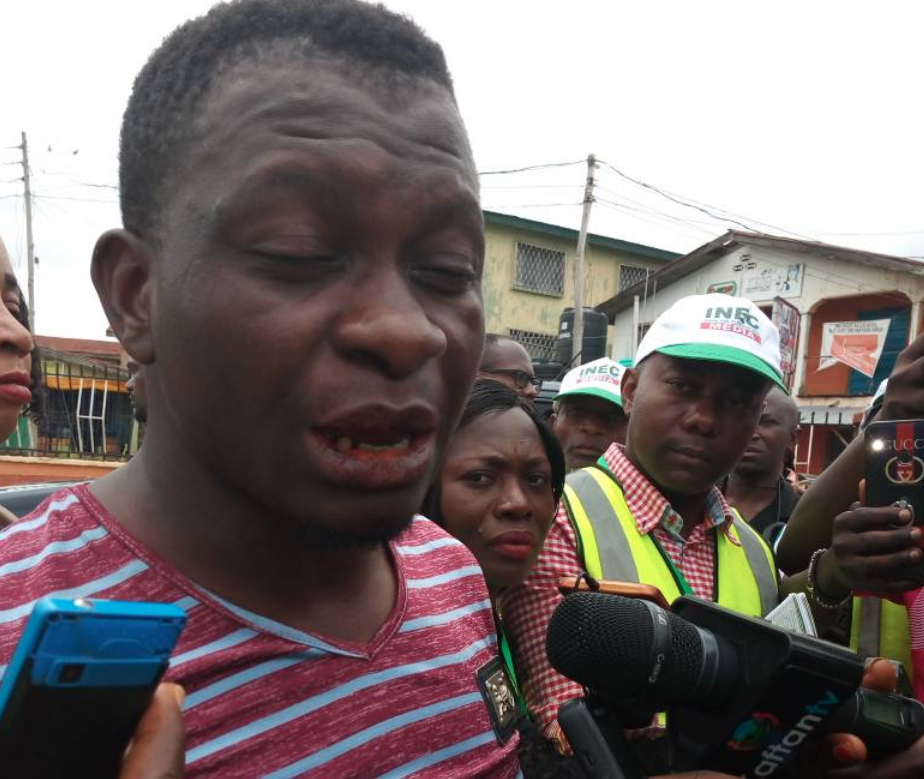
Back to Osogbo, I went to Alekunwodo, where votes were cast in ward 5, unit 17. The major roads to the area were blocked by security operatives. Colleagues at the centre were petrified as they discussed in hush tones how reporters were harassed despite the heavy presence of security operatives. Joel Chima, a journalist with Kaftan TV, had a close shave with death as thugs at the venue aimed a machete at his head but he intercepted it with his tripod stand which broke into two. It took a gun shot from a security operative to disperse the thugs who had surrounded him. His camera was destroyed.
Completely exhausted, I went back to the INEC office along Gbongan road in the state capital. I decided to settle for a plate of rice adjacent the gate, where the security operatives had also converged. A few metres away from me, Seun Falomo, a reporter with Galaxy Television, was making a call. He was ordered to stop the call and leave the premises. While he was trying to ask why he couldn’t make his call, a police officer snatched his phone and ordered him to leave. The reporter asked to be given his phone, but he was attacked by some policemen. He was tear-gassed and thoroughly beaten.
THE 419 VOTES IN OROLU
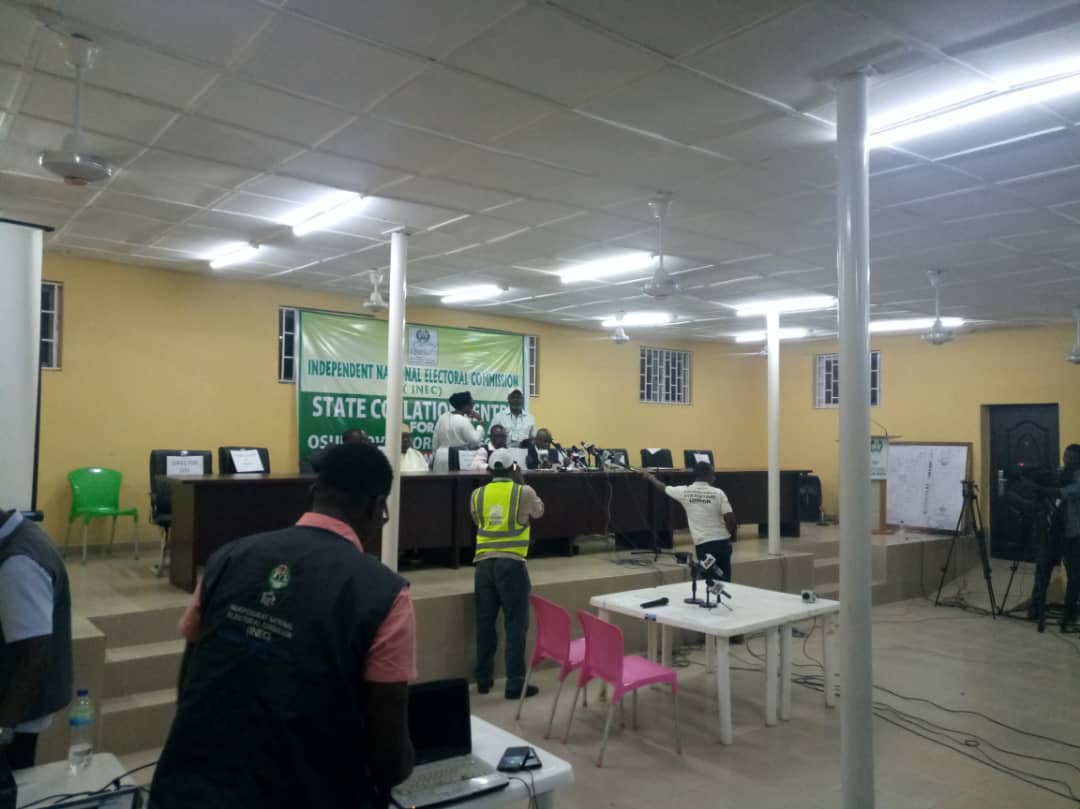
The final announcement started late in the night. I waited to hear the result from Orolu local government area, albeit I had stumbled on the scores. The returning officer from the local government reeled off the result and proclaimed that the number of the total votes cast in Orolu was 419. That threw everyone in the hall into laughter as some journalists chorused ‘419’. Yet, he repeated at the end of his presentation that the total votes was 419. Meanwhile, INEC announced on Saturday, after declaring the election inconclusive, that the accredited voters affected by cancellation in Orolu were 947 voters.
Dele Adeleke, the PDP agent, asked him if he was aware of the violence and harassment by thugs in the local government which prevented majority of accredited voters from casting their votes, the presiding officer denied any knowledge of such occurrence. He maintained that the election was peaceful, free and fair.
Even international observers who monitored and praised INEC for Saturday’s exercise were shocked over the turn of events on Thursday. All of a sudden, hooliganism took the center stage; violence became the new order. If people had doubts in the ability of INEC to conduct a free and fair election in 2019, the Osun rerun just confirmed their fears. The reforms and progress recorded in 2015 were eroded in Osun. It took INEC over 18 hours to conclude elections in seven polling units. Worse still, violence and disorderliness which prompted the repeat of the exercise tripled during the rerun yet INEC certified the exercise and all the collation officers denied the anomalies that were widely reported in the media. A sad one for democracy.
1 comments

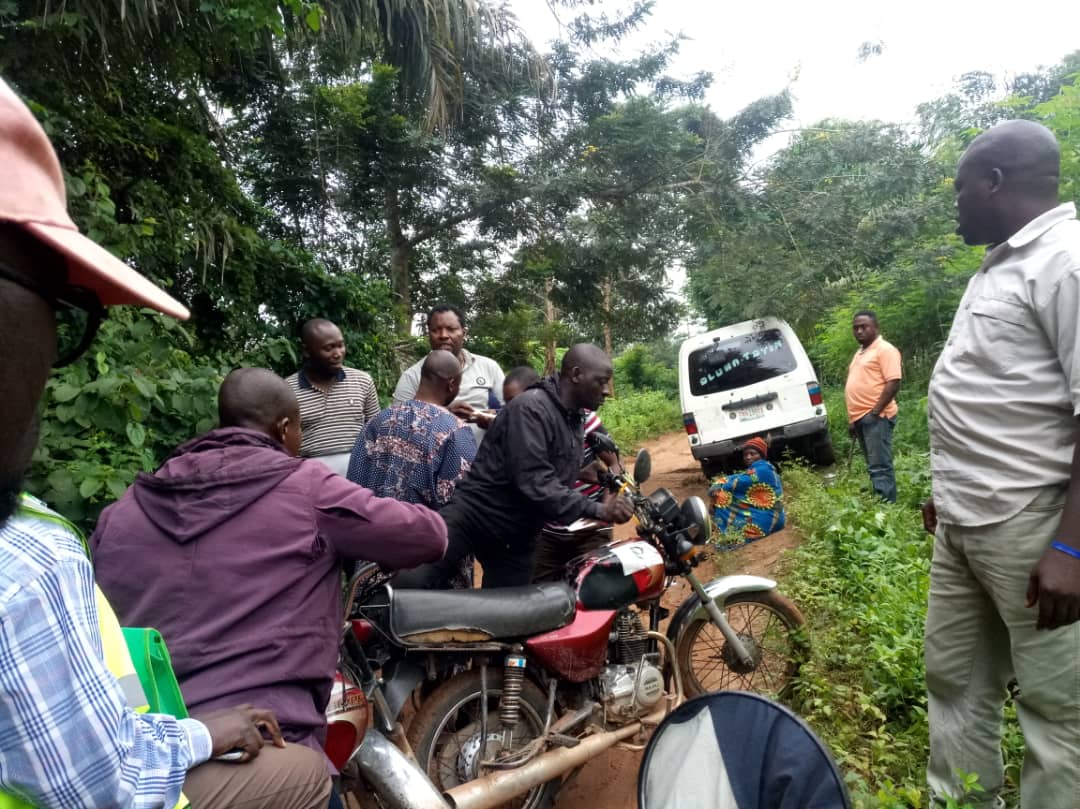

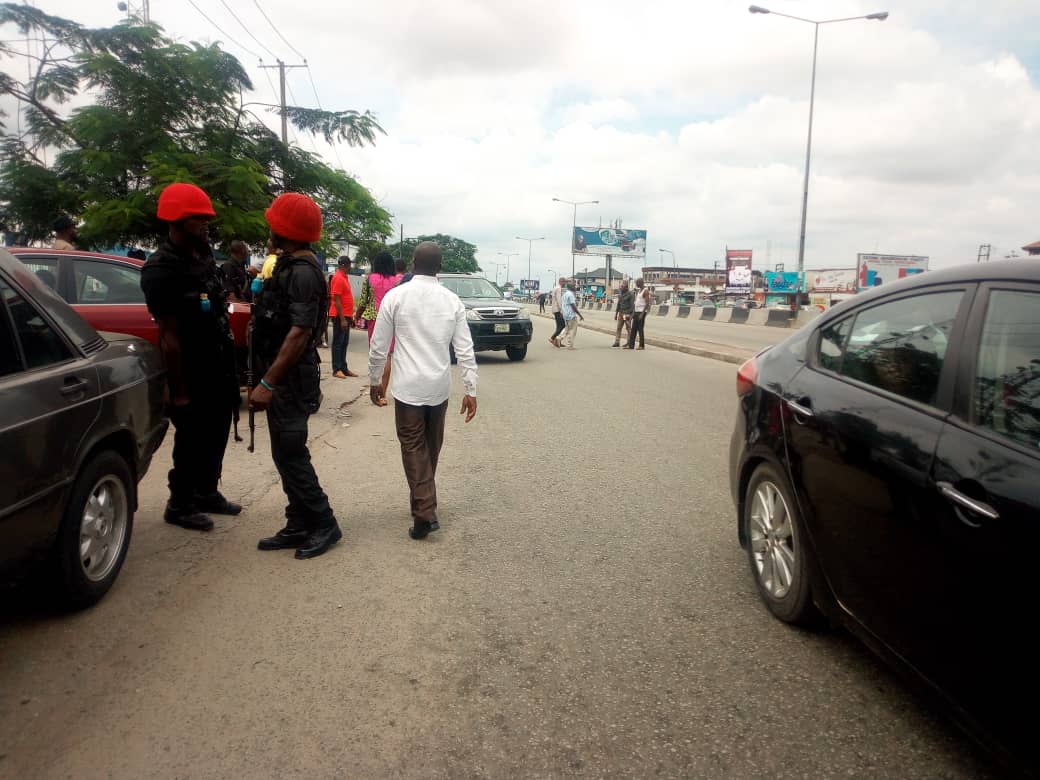
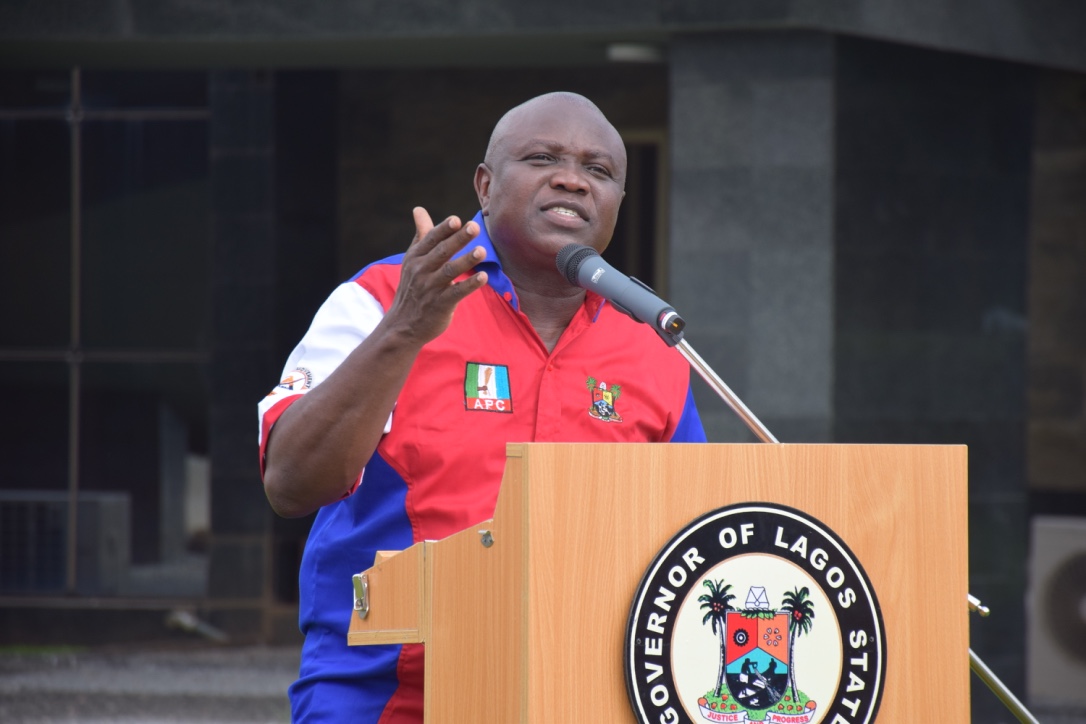

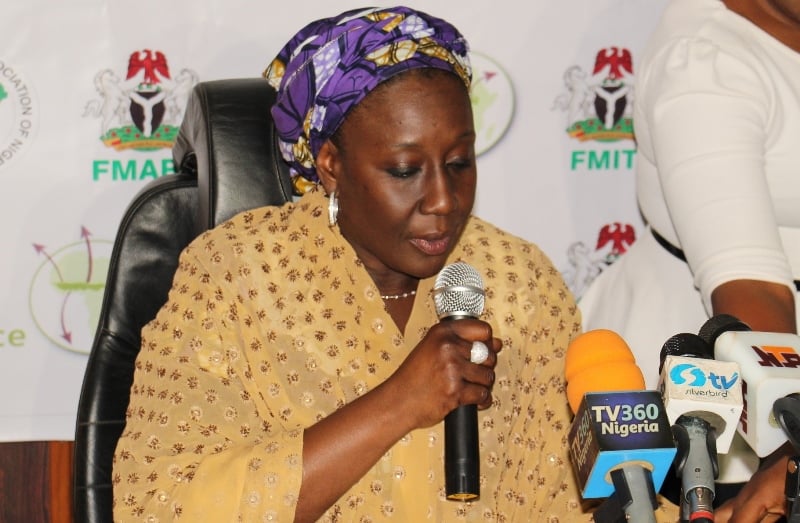
WE HAVE TO PRAY FOR GOD INTERVENTION